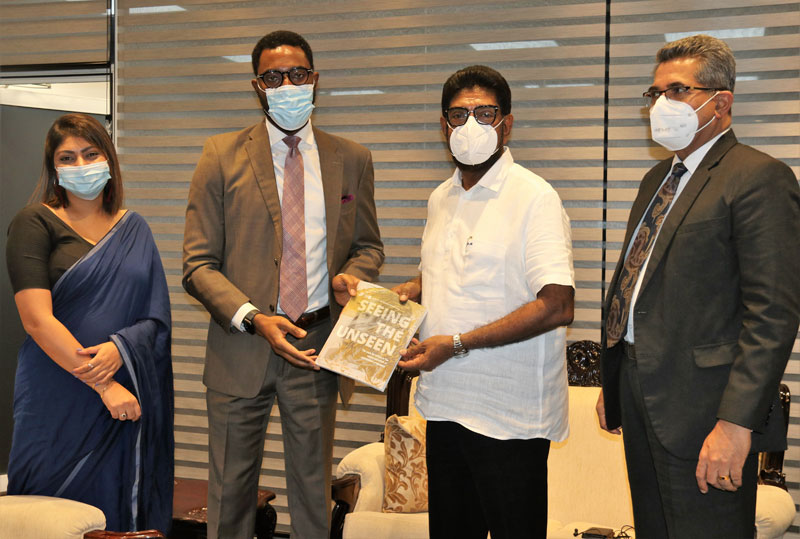Friday Feb 27, 2026
Friday Feb 27, 2026
Saturday, 2 April 2022 01:54 - - {{hitsCtrl.values.hits}}

Nearly half of all pregnancies, totalling 121 million each year throughout the world, are unintended. In Sri Lanka, about 360,000 women become pregnant every year. One out of three of these pregnancies are estimated to be unintended pregnancies. The unmet need for family planning is also at 7.3% (Demographic and Health Survey, 2016), a figure that may have been further augmented due to the pandemic. Public health emergencies like the COVID-19 pandemic have given rise to an increase in unintended pregnancies, as access to sexual and reproductive health services are disrupted.
As such, this year’s UNFPA flagship State of the World Population Report titled “Seeing the Unseen: The case for action in the neglected crisis of unintended pregnancy,” focuses on this issue.
In line with the global launch of the report, UNFPA Representative to Sri Lanka Kunle Adeniyi officially presented the groundbreaking report to the Minister of Health Keheliya Rambukwella. The report shows how easily the most fundamental rights of women and girls are pushed to the backburner in times of crises. It calls on decision-makers and health systems to prioritise the prevention of unintended pregnancies by improving the accessibility, acceptability and quality of sexual and reproductive healthcare services and information. As the United Nations sexual and reproductive health agency, UNFPA will continue working with the Government of Sri Lanka in enhancing these services which will empower women and girls to make informed decisions about their bodies and lives.
Five key facts from the 2022 SoWP Report:
1. Every year, almost half of all pregnancies are unintended.
2. Globally, an estimated 257 million women who want to avoid pregnancy are not using safe, modern methods of contraception.
3. Nearly a quarter of all women are not able to say no to sex (where data is available).
4. Over 60% of unintended pregnancies, and almost 30% of all pregnancies, end in abortion.
5. In humanitarian emergencies, such as the ongoing war in Ukraine, many women lose access to contraception and/or experience sexual violence.